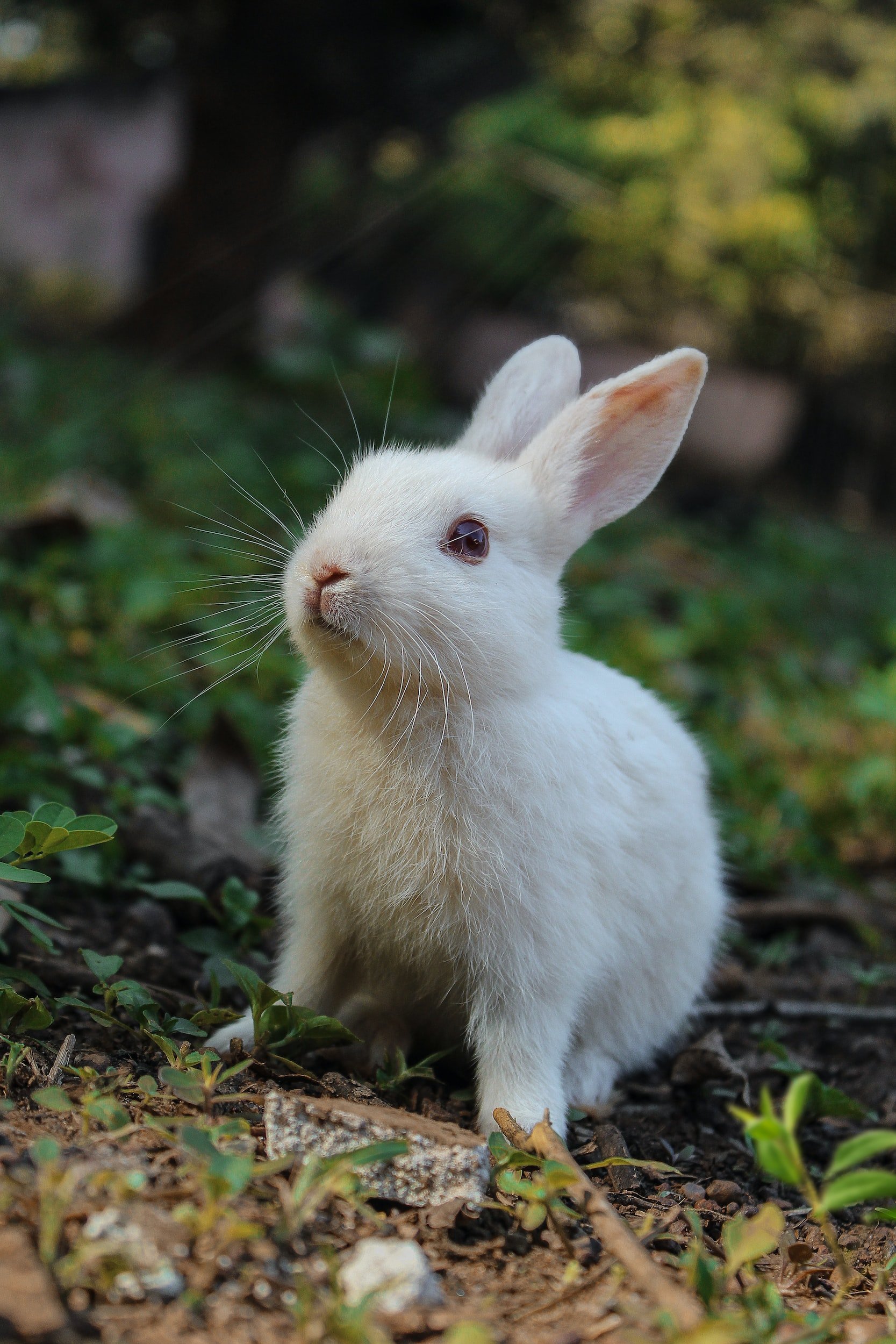Precious Rabbits
Rabbits are highly sensitive animals and can easily become stressed. Causes of stress in rabbits can include changes in their environment, lack of socialization, poor diet, and lack of exercise. Signs of stress in rabbits can include changes in behavior, such as lethargy or aggression, changes in appetite or weight, and changes in grooming habits. To prevent stress in rabbits, it's important to provide them with a stable and comfortable environment, regular socialization and interaction, a healthy diet, and plenty of opportunities for exercise and exploration. If you suspect your rabbit is stressed, it's important to consult with a veterinarian who is experienced with rabbits to determine the cause and develop a treatment plan.
Rabbits have a keen sense of hearing and are able to hear a wide range of frequencies. They are able to hear sounds as high as 42kHz and as low as 360 Hz, (Rickye S. Hefner, Department of Psychology, University of Toledo,) which is much higher than the range of human hearing which the highest at 20kHz. This allows them to detect sounds that are not audible to humans, such as the ultrasonic calls of predators. Rabbits can also hear sounds at a distance of 1.8 miles. Their ears can be rotated 270 degrees to help detect the source of a sound, and can revolve independently to monitor different noises.
It's important to note that rabbits are sensitive to loud or sudden noises, which can cause them stress and fear. To minimize the risk of stress, it's important to keep the rabbit's environment as quiet and peaceful as possible, and to avoid exposing them to loud or sudden noises.
There are several illnesses and conditions that can cause stress in rabbits. Some examples include:
Gastrointestinal issues: Gastrointestinal issues such as diarrhea, constipation, or gastrointestinal stasis can cause discomfort and stress in rabbits.
Respiratory issues: Respiratory issues such as pneumonia or bronchitis can cause difficulty breathing and stress in rabbits.
Dental issues: Dental issues such as overgrown teeth or abscesses can cause pain and difficulty eating, leading to stress in rabbits.
Parasites: Parasites such as mites, lice, or fleas can cause itching and discomfort, leading to stress in rabbits.
Reproductive issues: Female rabbits can experience stress when they are in heat or are pregnant, and male rabbits may experience stress when they are unable to mate.
Painful conditions: Any painful conditions such as arthritis, tumors, or injuries can cause stress in rabbits.
Environmental stressors: Unfamiliar surroundings or changes in the environment can cause stress in rabbits.
It's important to note that stress can also cause or exacerbate other illnesses, as well as make recovery from illnesses more difficult. If you suspect your rabbit is stressed or ill, it's important to consult with a veterinarian who is experienced with rabbits to determine the cause and develop a treatment plan.
The ear of a rabbit functions in several ways to help them detect and locate sounds in their environment.
Pinna: The pinna, or outer ear, is a large, movable ear that rabbits can rotate to pinpoint the source of a sound. This allows them to quickly locate potential predators or other threats in their environment.
Auditory canal: The auditory canal, or ear canal, is the pathway that leads to the eardrum. It is lined with fine hairs and wax that help to protect the eardrum from dust and other foreign particles.
Eardrum: The eardrum, or tympanic membrane, is a thin, sensitive membrane that vibrates in response to sound waves. These vibrations are then passed on to the middle ear.
Middle ear: The middle ear contains three small bones called the ossicles, which amplify and transmit the sound vibrations from the eardrum to the inner ear.
Inner ear: The inner ear contains the cochlea, which is responsible for converting the sound vibrations into electrical signals that are sent to the brain. The cochlea is also responsible for detecting the different frequencies of sound, allowing the rabbit to hear a wide range of sounds, including ultrasonic calls of predators.



